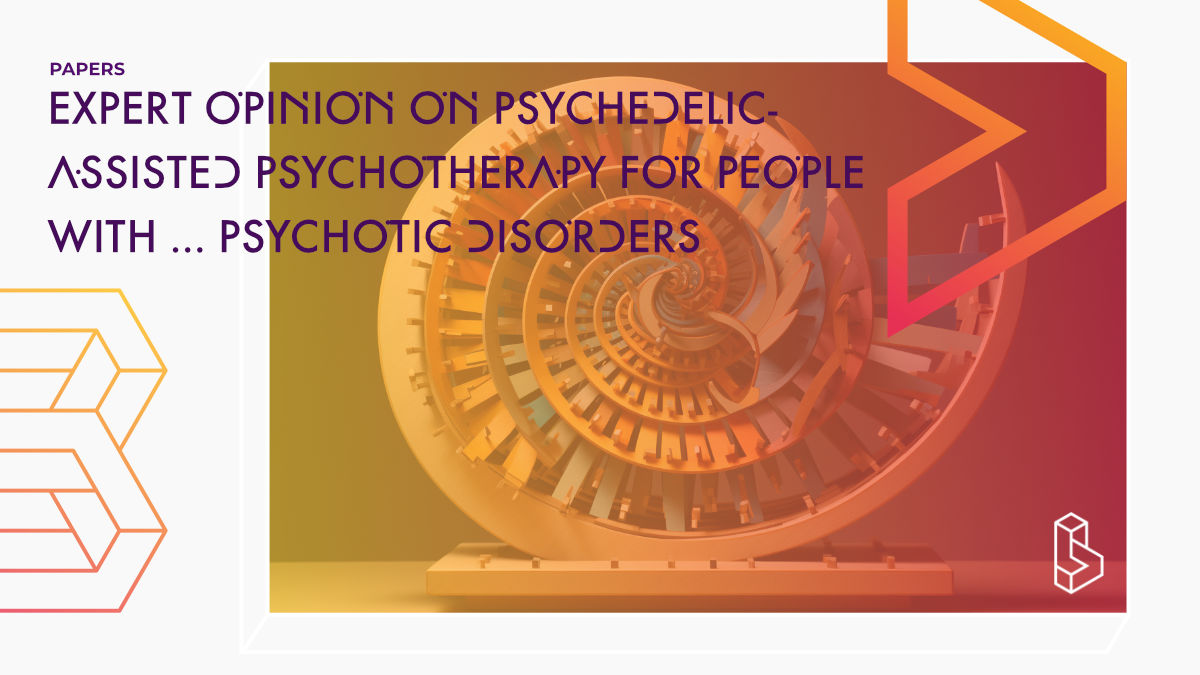This expert consultation study (n=12) investigated the exclusion of individuals with personal or familial histories of psychopathological experiences from most psychedelic clinical trials and treatment programs. Experts in psychiatry, clinical psychology, medicine, and psychedelics were interviewed, and the findings revealed that exclusion criteria may be justified in studies with minimal psychological support. They agreed that psychedelic-assisted psychotherapy, as well as therapy with MDMA and ketamine, might be beneficial for some individuals within this group.
Abstract of Expert Opinion on Psychedelic-Assisted Psychotherapy for People with Psychopathological Psychotic Experiences and Psychotic Disorders
“Currently, individuals with personal or familial histories of psychopathological experiences of psychosis, psychotic spectrum disorders, bipolar disorder, and similar conditions are excluded from most psychedelic clinical trials, studies, and treatment programs. This study sought to determine why such an exclusion exists, what the implications of the exclusion criteria are, and if there was agreement in expert opinion. In-depth interviews with 12 experts in the fields of psychiatry, clinical psychology, medicine, and the effects of psychedelics were conducted in an expert consultation format. Interviews were transcribed, and themes were produced using an interpretative phenomenological analysis (IPA) approach. We found that while the exclusion criteria may be justified for psychedelic protocols that provide minimal psychological support for participants, experts agreed that psychedelic-, ketamine-, and MDMA-assisted psychotherapy are not necessarily contraindicated for all individuals within this group. Rather, results suggest that psychedelic-assisted psychotherapy as well as therapy with MDMA and ketamine, which include high levels of support, may be of benefit to some individuals experiencing said conditions and symptoms. Potentially relevant factors for predicting treatment outcomes include specific symptom endorsement, illness duration, symptom severity, quality of therapeutic alliance, role of trauma in symptom etiology and perpetuation, and the level of other supports in the client’s life. An analysis of expert opinions revealed that psychedelic-assisted psychotherapy can potentially benefit people with psychopathological psychosis and psychotic conditions under the right conditions. However, more research needs to be carried out to determine the risks and develop a protocol specific to this population.”
Authors: Joseph T. La Torre, Mehdi Mahammadli, Sonya C. Faber, Kyle T. Greenway & Monnica T. Williams
Summary of Expert Opinion on Psychedelic-Assisted Psychotherapy for People with Psychopathological Psychotic Experiences and Psychotic Disorders
Psychedelic-assisted psychotherapy (PAP/PAT) is psychotherapy that involves the administration of psychoactive compounds known as psychedelics. Some individuals with personal or familial histories of psychopathological experiences of psychosis, psychotic spectrum disorders, bipolar disorder, and similar conditions have been historically and remain currently excluded from research and practice of PAP.
Psychosis and Culture
Experiences that would be labelled as psychotic in Western psychiatry are sometimes understood differently in Indigenous communities around the world. Moreover, individuals who hallucinate may partake in psychedelic plant rituals without any evidence of worsening their mental status.
Find this paper
https://doi.org/10.1007/s11469-023-01149-0
Paywall | Google Scholar | Backup | 🕊
Cite this paper (APA)
La Torre, J. T., Mahammadli, M., Faber, S. C., Greenway, K. T., & Williams, M. T. (2023). Expert Opinion on Psychedelic-Assisted Psychotherapy for People with Psychopathological Psychotic Experiences and Psychotic Disorders. International Journal of Mental Health and Addiction, 1-25.
Study details
Compounds studied
MDMA
Ketamine
Topics studied
Schizophrenia
Study characteristics
Commentary
Qualitative
Participants
12
Humans

